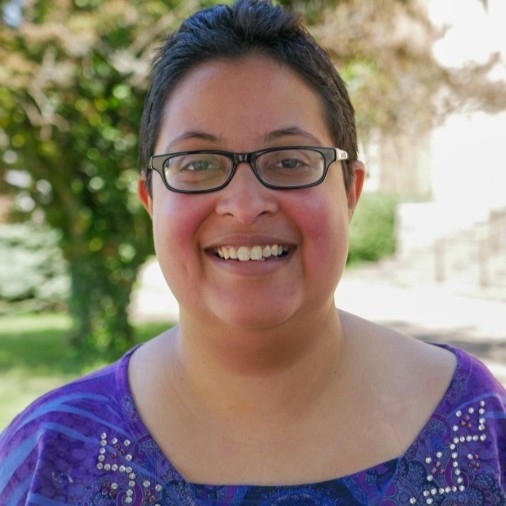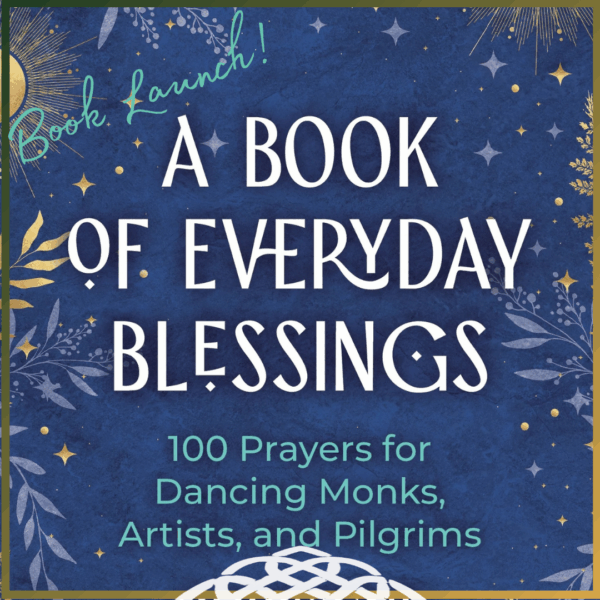I am delighted to share another beautiful submission to the Monk in the World guest post series from the community. Read on for Naimi Gonzalez’s reflection learning to be present through lectio divina.
I am in the beginning stages of learning to be more contemplative in my everyday life. The impetus to be more thoughtful and present came after years of struggling with racing thoughts. From the moment I wake up to the moment my head hits the pillow the noise in my head has been fairly constant.
I remember waking up one morning a few months ago realizing that time has flown by and I can barely remember what I had done because I would be fluttering from one task to another, one thought to another. The days were slipping through my fingers like sand, leaving me feeling frustrated that I could not recall what I had done: moments of laughter and joy with friends were gone because I could not be present enough to savor the joy of each day.
I was tired of living a life that was speeding by and turned to a close friend known for her love of contemplation and living in the moment. I explained to her that I was frustrated with my inability to live in the present moment and the advice given on social media often consisted of, “learn to pause.”
I told her, “if I knew how to do that, I wouldn’t be in this position.”
She listened and offered me numerous suggestions: “What if you did a guided meditation?”
“Absolutely not. Meditation makes me more anxious, not less.”
“What if you went on a walk and physically touched the environment around you,” she persisted.
“In this heat? I barely want to go bring in the trash cans. It is too hot. And before you suggest it, in a few months it will be too cold. ”
“You like to be doing something, how about finding a craft where you can engage your hands while focusing on being present?” She asked.
I quickly shut down that idea: “I tried pottery for five seconds, then I got so mad that the object wasn’t coming out perfectly that I made my teacher finish the project for me. Same thing happened during a sewing class. And a knitting class. My sister tried to show me how to make jewelry but that somehow required math and counting. Listen, if I have to count higher than 20, I don’t want to do it.”
Finally, my friend, knowing that I have a passion and love for Scripture, asked me to try lectio divina.
I begrudgingly responded, “Sounds like meditation but with more steps. But I will give it a try. Can I at least write down my thoughts?” I still needed to be doing something.
At first, this was difficult. I love reading Scripture but usually, it’s for a specific purpose: such as in preparation for a sermon or talk that I am giving.
Trying to pause and focus on Scripture alone was a challenge. I would read a verse and automatically my mind would start thinking and processing: “this passage was probably written during ____ BCE or CE. The historical context was probably x,y,z.”
Every time my mind started to race, I turned my attention to the passage and practiced letting my thoughts go. Not repress them, I quickly found out the more I tried repress my thoughts the more my mind wandered. But instead I acknowledged the existence of my thoughts and then focused on the task at hand. The hardest step of lectio divina was the final contemplation step. Initially I spent the least amount of time on this aspect of lectio divina: I would spend about a minute or so before I had to get up and do something. The urge to move was, at first, overwhelming.
But now, as this is part of my daily practice I find the urge to move slowly dissipates. I find that I can spend longer periods of time just pausing and existing. Before it felt as if I was at the mercy of my racing mind: helpless to live in the present moment and doomed to be running from one thought to the next.
Now, I feel a measure of control. Do I need to obsess about a work project due in five days at this exact moment? No, actually. I can deal with it during my working hours. Do I need to wake up in the middle of the night and start thinking about the latest tiktok drama between two people who I don’t know? No, I don’t need to get involved in the constant bickering and conflict of social media.
The ability to pause my racing thoughts means that I remember my days more. I remember the joke my coworker made that had the whole office laughing. I remember the taste of the delicious milkshake I ordered. I remember and conjure up how the sun feels as it touches my arms. I relish the soft fur of my neighborhood cat that insists on being petted.
In addition, my prayers to God feel more intentional and less one-sided. Before prayer was just me offering God a random stream of consciousness, now being able to pause enables me to witness the ways in which God speaks to me. Yes, through Scripture but also through everyday moments that before had slipped me by: the sound of nature in the mornings, the friendly dogs at the park on my way to work, and the caring words of a coworker.

Naimi Gonzalez (She/They) is a professional nerd. They are Puerto Rican, queer, and nonbinarish. They have a passion for helping other Christians, especially those questioning fundamentalist Christian theology, expand their understanding of God. Their writing can be found at FaithfullyRadicalChristian.substack.com


